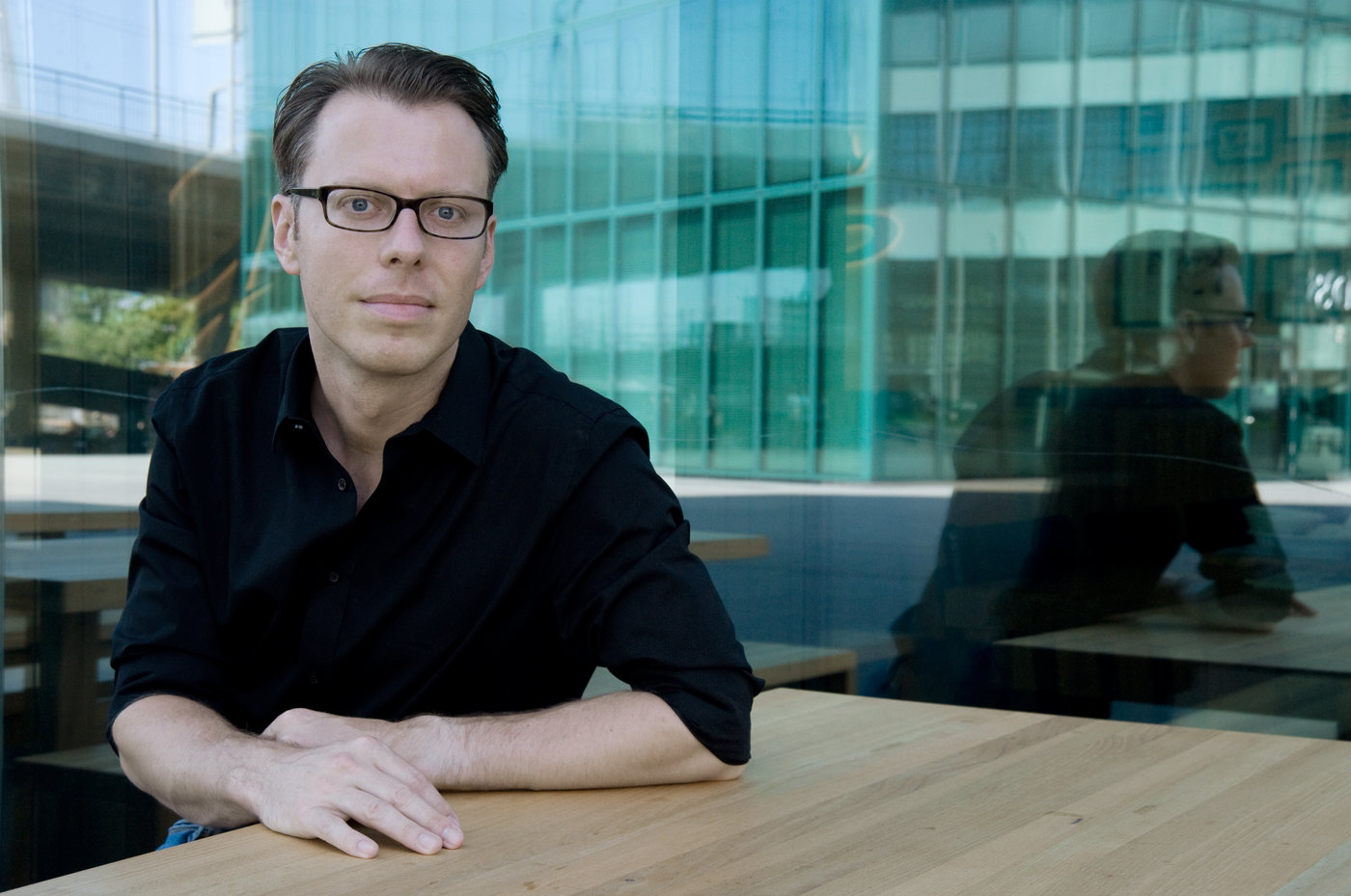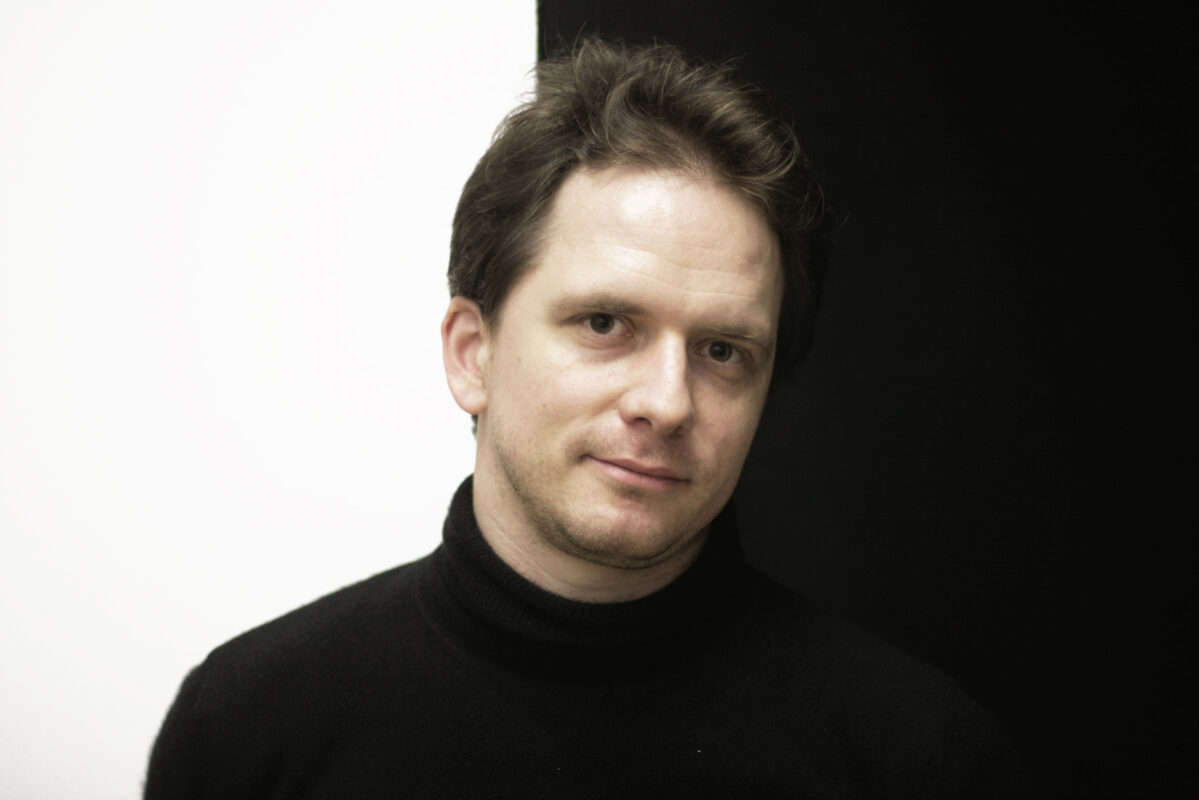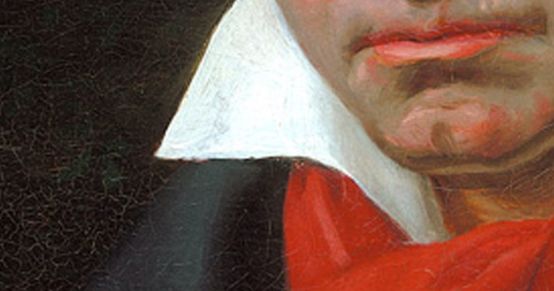"The score connects me to others".
Through his original works, David Philip Hefti offers a captivating approach to tonality and reveals an astonishing expressiveness. He sees music as an exchange of ideas.

David Philip Hefti, winner of the ICMA Composer Prize 2023, was invited to take up a residency at the Zermatt Festival.
David Philip Hefti, you are a clarinettist by training and have played in orchestras for many years. How did you get into composing and conducting?
I started learning the clarinet when I was eight. And even at that age, playing from sheet music, from written notes, really bored me. So I chose popular tunes and created harmonies around them. Even as a child, I had fun writing music, even if you couldn't call it composing, because they were really bad pieces (laughs). It was my first attempt at composing with the clarinet. Until I was a teenager, I loved playing an instrument, but above all I loved composing and inventing music. My years at the St. Gallen gymnasium were a wonderful time, because as a young clarinettist, I had the opportunity to play in the two orchestras that existed there, a symphony orchestra and a wind ensemble. At the same time, the directors gave me the opportunity to conduct both groups. So that's when I started conducting an orchestra.
Were you already taking conducting lessons at that time?
Not at that time. I was practicing on my own. For me, playing the clarinet, composing and conducting formed an organic whole, I didn't see any difference. Later, of course, I continued my musical studies in Zurich and Karlsruhe, taking courses in composition, conducting, clarinet and chamber music. Notably with Cristóbal Halffter, Rudolf Kelterborn, Wolfgang Meyer and Wolfgang Rihm... Then fifteen years ago, when I was just over thirty, I decided to give up clarinet and devote myself entirely to composition and conducting, giving it all my energy. It was certainly one of the best decisions I could have made.
How do you manage your time as a composer and conductor?
For me, the two activities are complementary and fundamental. Composers work in solitude, and for me that's sometimes difficult, because I need to be in touch with people. I really appreciate the social aspect, the connection with the performers, the work with the orchestra and collaborators, the closeness to the audience. Experiencing the stage in the role of conductor is essential, because it gives me a chance to conduct not only my own works, but also the masterpieces of Beethoven, Mozart, Berlioz... I only conduct for eight weeks of the year, but that's always in the context of very inspiring projects where contemporary music has an essential place. The rest of the time, I compose.
Many of your works are written for string quartet. Do you have a preference for chamber music, and strings in particular?
Chamber music is indeed a large part of my work. Probably a third of my works are for symphony orchestra and two-thirds are chamber music. But really, I don't have a preference. On the other hand, I'm a clarinettist by training, but strangely enough I feel like a cellist, and looking back I feel I've chosen the wrong instrument. It's true that I very often compose for strings, which I adore, because they can simply do anything. The quartet offers infinite possibilities and forms such a homogeneous sound! After the Zermatt Festival, I'll be starting my eighth string quartet! (Laughs).
Is your writing process different when composing an orchestral work or chamber music?
Obviously, writing for an orchestra requires a lot of work, because of the much larger number of instruments involved. But for me, the thought process is almost the same. In both cases, it's a question of conceiving a musical work that corresponds to the sound expression of my thoughts, of creating a piece, of imagining music, and above all of developing good musical ideas.
You have composed two operas - Annas Maske (Anna's Mask) and, in a semi-staged version, Die Schneekönigin (The Snow Queen)which were a resounding success. What was it like working with an opera house?
Experiences with Theater St Gallen and the Tonhalle Maag in Zurich were very positive, and I'm planning to write my third opera (smiles). Music is obviously very important in an opera, but it's only one part. There's also the voices, the chorus, the staging, the lighting... There's a whole teamwork that I really appreciate. I realize that the artistic communion between director, composer, conductor and singers is fundamental to the success of an opera production! As a composer, I'm not the "boss", and I often have to stand back. But when the composer has the opportunity to choose the team with which he will collaborate, which was my case, then the chances of success are all the greater.
For your room, Ans Ende der Zeit (At the End of Time), you also collaborated with a choreographer. Is this an experience you'd like to repeat?
Ans Ende der Zeit is, in fact, my String Quartet No. 7, which I composed in 2023, following a commission from the Graz Opera for ballet music. Dedicated to the memory of my father, the piece lasts twenty minutes and can be interpreted as a kind of prelude to String Quartet No. 7.o 14 by Schubert (The Maiden and Death). The fact that a choreography was planned had a major influence on my working process. The close and productive dialogue with choreographer Beate Vollack then enabled me to express our shared dramaturgical ideas musically. I couldn't wait to find out how my piece would be danced, even before I'd written the first notes. It was a fantastic experience that inspired me enormously in my work and pushed me forward. Beate Vollack, whom I know well, was recently appointed Director of Dance at the Opéra national du Capitole de Toulouse, and we are already discussing a new, larger-scale project...
In 2022, you compose a rhapsody for baritone and orchestra, a work based on a text by Salman Rushdie. How did this project with the writer come about?
The Württemberg Chamber Orchestra (WKO) in Heilbronn commissioned me to write a work for the 75th anniversary of their founding.e Sir Salman Rushdie's birthday. The orchestra's conductor and artistic director, Case Scaglione, is a close friend... of course I accepted immediately, but I needed a context for the writing of my piece. So I contacted Salman Rushdie, who was immediately friendly and very enthusiastic about sending me a text from his sixth novel The Ground Beneath her Feet (La Terre sous ses Pieds). It's a version he specially re-edited for this project, and on which I composed this rhapsody. Unfortunately, following a physical attack on him, he was unable to attend the world premiere, which took place in September 2022 with the excellent baritone Benjamin Appl. But I very much hope that the piece will be performed again in Salman Rushdie's presence.
What do you think of the debate between advocates of a return to tonality and defenders of modernist, experimental currents? Where do you stand?
As far as I'm concerned, a return to tonality is not possible. The composers of the past have already explored everything brilliantly. The tonal system reached its apogee with the Romantic composers, and we have inherited a repertoire of the highest quality. So I think there's no reason to go back to tonality. Today's composers have to move forward. Each composer is of course free to decide whether or not to integrate elements of tonality. As for my works, I think they evolve within a logic, and form an organic whole. For me, it's always difficult to say today that I've found my style or my language, because it will change in the future! It's true that I attach great importance to expressiveness, and harmonious melodies are identifiable in some of my works, as in my Octet for example. But it's not a question of tonality! I can't go back to F major or B minor (smiles)...
As a composer and conductor, you were invited to take up a residency at the Zermatt 2023 Festival. What was your experience with the young musicians of the Festival Academy?
This is the first time I've been invited to take up a residency as a composer, conductor and teacher. And I must say it's a very special and enriching experience for me. The format offered by the Zermatt Festival Academy is unique in that it provides young musicians with an intensive chamber music course, under the guidance of the excellent soloists of the Scharoun Ensemble Berlin. It's been a great pleasure to work on my works with these young instrumentalists, who show great enthusiasm and fervor. And for my part, I'm curious, I learn a lot from the students, and I always like to take their suggestions into account for my next pieces.
The Zermatt Festival commissioned you to write a work for the Scharoun Ensemble Berlin, which gave its world premiere here. Is this composition also a tribute to Schubert?
Yes, Des Zaubers Spuren (Traces de Magie) is an octet for clarinet, bassoon, horn, string quartet and double bass. I dedicated it to the Scharoun Ensemble Berlin for their 40th anniversary.e anniversary concert at the Berlin Philharmonic at the end of September. Des Zaubers Spuren is indeed a tribute to Schubert's music, whose depth touches me directly. I chose the same instrumental combination as Schubert did in his Octet in F major, a work also performed by the Scharoun Ensemble Berlin to open the Festival, and which I myself have probably played a hundred times as a clarinettist! In its harmonies, motifs and similar structure, my octet echoes Schubert's in a way...
What do you think of the place of the composer in today's society?
Composers have greater visibility, thanks in particular to residencies at festivals and institutions. I can see a real evolution: contemporary music has been constantly expanding its audience since the 60s, but it's not enough! I think that concert programming should be much more diversified, and systematically include a new work or a contemporary work from the early 20th century.e century, as is the case at the Zermatt Festival. And open up a window of discovery. In fact, even children are captivated by the surprising sounds that contemporary instrumentalists can produce! But all too often, institutions are run by people with no musical training, who can't read a score and therefore know little about the 20-21 repertoire.e centuries. While there are many excellent male and female composers today, unfortunately still unknown to the public...
You are a prizewinner in many renowned composition competitions - such as Gustav Mahler in Vienna, Pablo Casals in Prades, and George Enescu in Bucharest. In 2013, you were awarded the Composition Prize by the Ernst von Siemens Foundation, and in 2015 you won the Hindemith Composition Prize. In April 2023, you were honored with the Composition Prize (ICMA) in Wroclaw. What does this mean in concrete terms for you as a composer and for your career?
First of all, it's truly an honor for me to receive such an award. Secondly, this recognition of my work is important, as it creates opportunities for artistic collaboration and facilitates the realization of projects with orchestras and institutions around the world. And so far I've been lucky enough to work with some excellent artists.








